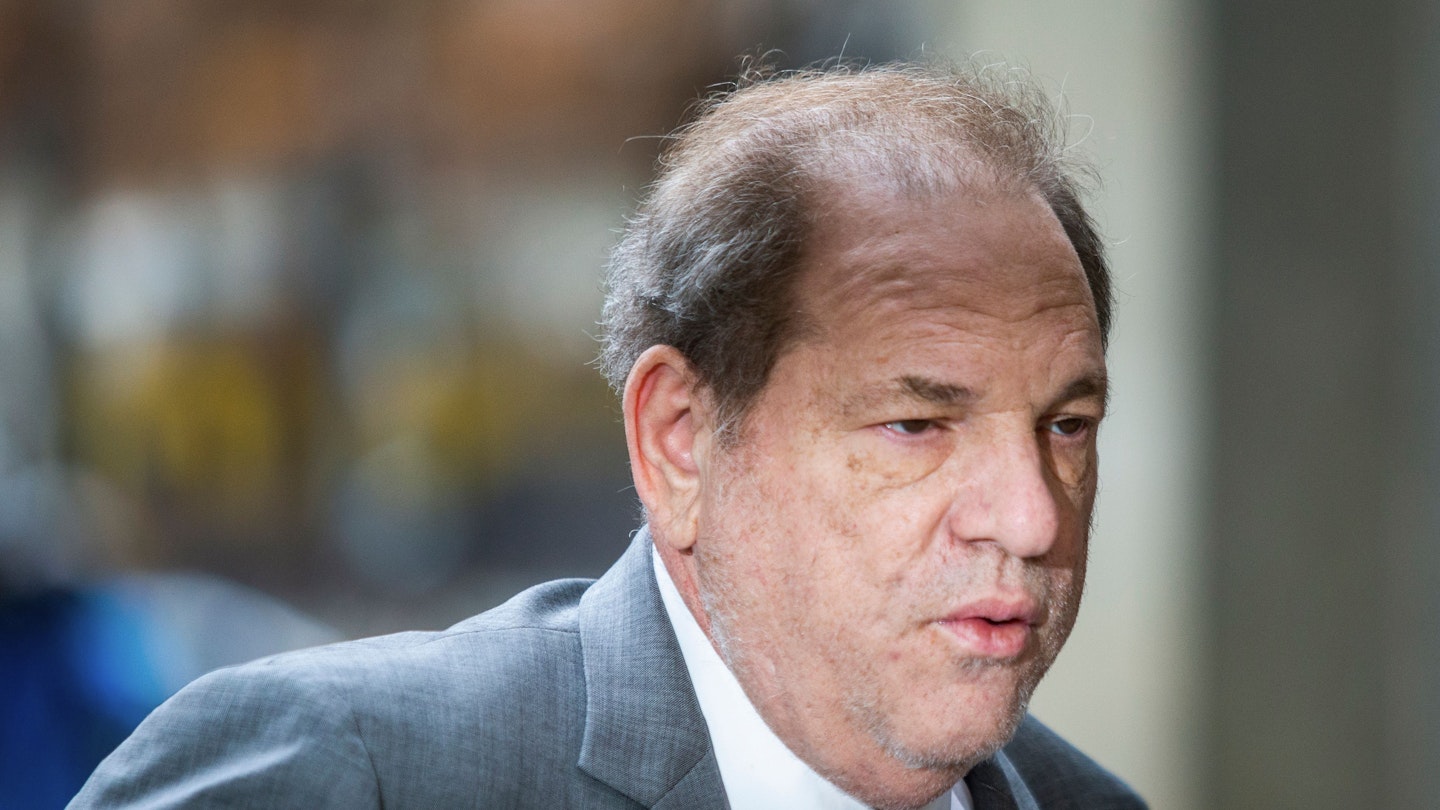As Harvey Weinstein awaited his January trial on rape and sexual assault charges, he decided it would be an opportune moment to give his first interview in over a year. Talking to the New York Post recently, and still denying all allegations, he said he’d become ‘a forgotten man’ and argued that he’d actually ‘pioneered’ empowering women in film: ‘I made more movies directed by women and about women than any filmmaker, and I’m talking about 30 years ago. I’m not talking about now when it’s vogue. I did it first!’
This was not the first time that Weinstein – whose trial was scheduled to begin in New York on 6 January – had returned to the public sphere since the avalanche of allegations against him were brought to light in 2017. In October 2019, he attended a club in New York City where one young female comedian, herself a rape survivor, called him out during her set. She was met with boos and told to ‘shut up’ by audience members.
Rage as we might at the filmmaker’s audacity in slithering back into the public realm to say wild things about championing women – hail this Gloria Steinem in disguise! – can he ever be truly cancelled? After all, we’ve seen other #MeToo alumni successfully make their own comebacks, from comedian Louis CK, turning up in clubs to be met with great support, to Bill O’Reilly, the fired Fox News giant, who has found himself with a new TV show.
Weinstein, for his part, was a figure so powerful, he pulled the strings across a multi-million-dollar industry for the best part of 20 years. Still, when a room boos the woman calling out Weinstein, not the alleged serial predator himself, what is going on?
Perhaps it’s not so surprising. Consider the triumvirate of unbreakable Hollywood men: Woody Allen, Roman Polanski, Mel Gibson. Regardless of the allegations circling them, some for decades, it’s on to the next movie, award, advertising campaign they go.
We expect great men to be awful, as if genius is two-parts talent, one-part arsehole.
We have a sorry history of excusing terrible men because we’ve been fed the most dangerous of lies: that the brilliance or talent of men is far more important than the women they violate and the lives they ruin. So cleverly has this lie been spun, we expect great men to be awful, as if genius is two-parts talent, one-part arsehole.
Will it be different for the man who has become the monstrous face of the #MeToo movement? Weinstein is a man who has been able to control the actions of others, to great manipulative effect, for a very long time, so it is unsurprising that he thinks he can do the same now. Yet we need a bigger cultural shift where it is no longer up to these men when they make their comeback, or orchestrate their rehabilitation, or tell the press they are great champions of women (we’d all just forgotten).
And neither can it be a ‘cancel culture’ tsunami of social media righteousness that hounds them from public consciousness – because that isn’t justice, either. Justice that gives survivors a choice, a real choice, not to be bought and bullied into silence. As Grazia went to press, Weinstein was about to settle $25 million in reparations to alleged victims, paid out by insurers, no less. The deal did not require him to admit any wrongdoing. But the stakes are about to get very high. If convicted in court, he could face life imprisonment.
Has #MeToo come far enough to serve proper justice? We’ll see. In the meantime, a message to Weinstein: don’t you worry, nobody is going to forget about you.
READ MORE: Harvey Weinstein Says He Has Done More For Women Than Any Other Filmmaker
READ MORE: Ronan Farrow: 'Weinstein Is Absolutely Still Meddling'
